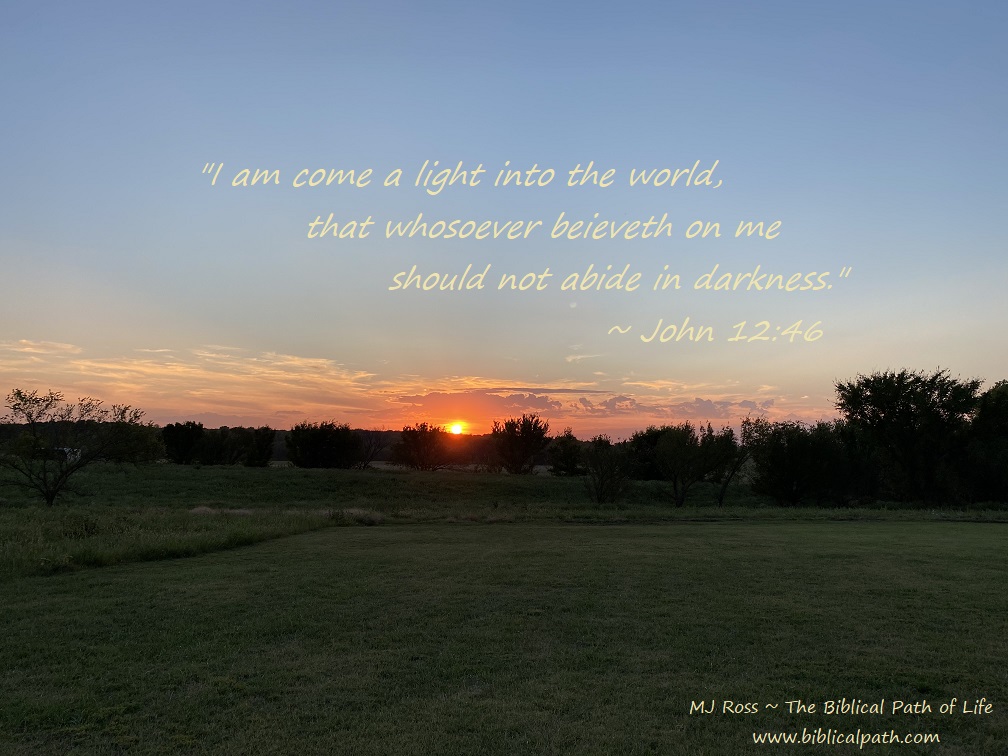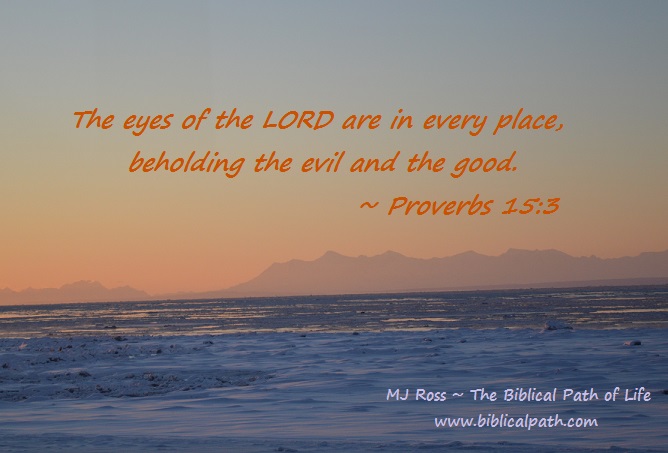
John 12:46
There was a particular blind man that Jesus healed. Jesus had just told his disciples that He was the Light of the world. “As long as I am in the world, I am the light of the world” (John 9:5). When they encountered a blind man, Jesus made clay and anointed the eyes of the blind man. He then told the man to go wash his eyes. The blind man went, washed his eyes, and came again seeing.
There was much discussion about this man amongst the people. They finally took him to the Pharisees. When the Pharisees asked what happened to him, he told them. After much discussion, they called him again asking how he could see. All he knew was, “whereas I was blind, now I see” (John 9:25b).
The religious people challenged Jesus’ authority to give this blind man sight. “We know that God spake unto Moses: as for this fellow, we know not from whence he is” (John 9:29). This man, who was once blind, did not understand them. This is a marvelous thing! Even though these religious leaders did not know Jesus, the blind man was just glad that he could see! This blind man understood enough to know that God is the one that heals. “32. Since the world began was it not heard that any man opened the eyes of one that was born blind. 33. If this man were not of God, he could do nothing” (John 9:32-33).
The religious leaders did not like his answer. “34. They answered and said unto him, Thou wast altogether born in sins, and dost thou teach us? And they cast him out” (John 9:34). They cast him out of the Temple.
When Jesus heard, he found the man. “Jesus heard that they had cast him out; and when he had found him, he said unto him, Dost thou believe on the Son of God?” (John 9:35). The man who had been healed had a question. “He answered and said, Who is he, Lord, that I might believe on him?” (John 9:36). Jesus declared to him that He was the Son of God. Read the man’s response. “And he said, Lord, I believe. And he worshipped him” (John 9:38). This man who was blind could now see. But more than that, he met Jesus and believed that He was the Son of God. He could not only see physically, but spiritually he “saw” Jesus.
What happened next? Jesus had a point to make. “And Jesus said, For judgment I am come into this world, that they which see not might see; and that they which see might be made blind” (John 9:39). The religious leaders heard what Jesus had to say. The Pharisees responded. “And some of the Pharisees which were with him heard these words, and said unto him, Are we blind also?” (John 9:40). Jesus responded: “Jesus said unto them, If ye were blind, ye should have no sin: but now ye say, We see; therefore your sin remaineth” (John 9:41).
The Pharisees did not think they were blind. Jesus pointed out that they were right. They could see. Most importantly, they could see the sin in their lives and chose to let it remain – even though Jesus was right there. For Jesus is the only one who could take that sin away, curing the blindness in the Pharisees. Remember why Jesus cam: “I am come a light into the world, that whosoever believeth on me should not abide in darkness” (John 12:46). In this instance, the Pharisees chose to remain in darkness. Read what the Bible teaches about those who choose to remain in their sin. “26. For if we sin wilfully after that we have received the knowledge of the truth, there remaineth no more sacrifice for sins, 27. But a certain fearful looking for of judgment and fiery indignation, which shall devour the adversaries” (Hebrews 10:26-27).
Have you chosen to see (believing in Jesus), or to abide in darkness (remain in sin)?

